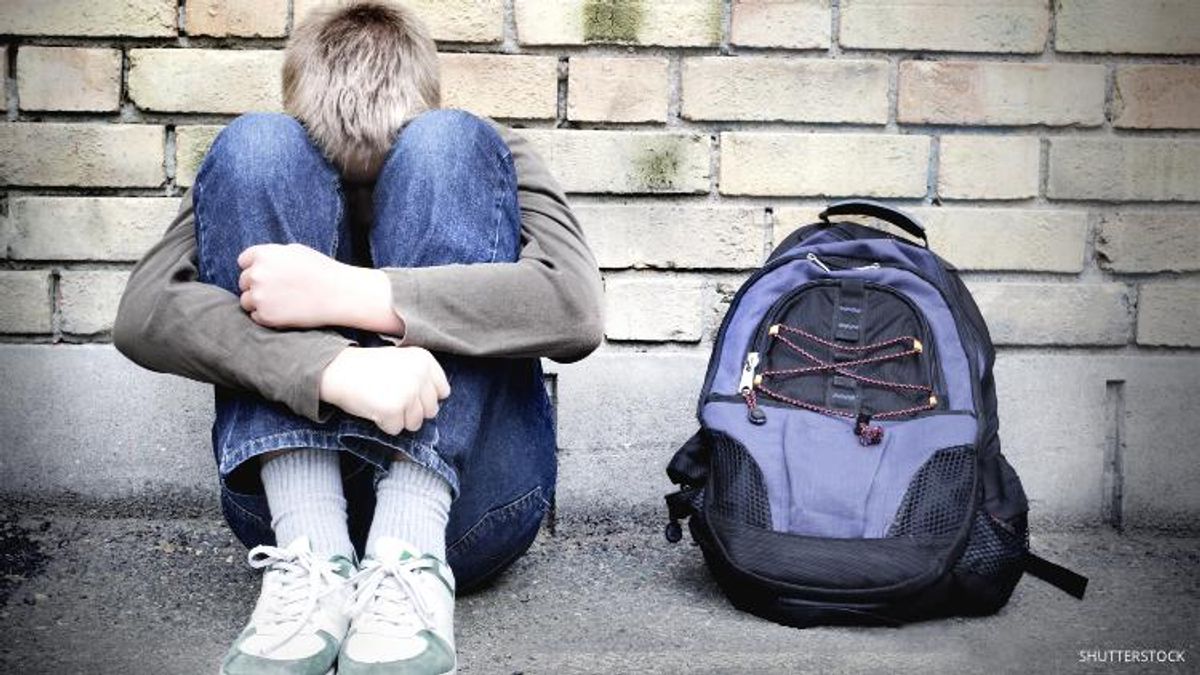Youth
LGBTQ Youth Among the Most Vulnerable as Homeless Centers Close

Homeless shelters across the country are shutting their doors amid the COVID-19 outbreak, putting LGBTQ youth at higher risk.
March 24 2020 2:11 PM EST
May 31 2023 6:15 PM EST
By continuing to use our site, you agree to our Private Policy and Terms of Use.

Homeless shelters across the country are shutting their doors amid the COVID-19 outbreak, putting LGBTQ youth at higher risk.
As COVID-19 continues to invade our lives, keeping the majority of Americans (and much of the world) in self-isolation in hopes that it will slow the rise in cases, one specific population is at exceptionally high risk: LGBTQ youth.
A new report by Reuters shines a light on the closures of homeless centers across the United States, many of which have been forced to "follow safety precautions over social distancing" on many local levels.
These closures put LGBTQ people experiencing homelessness at increased risk of suicide, hate crimes, and health complications.
The needs of queer youth are unique. As True Colors United has found, housing and identity-related supports are the two greatest needs for LGBQ youth experiencing homelessness.
For transgender youth, housing, access to transition-related supports (including legal support, name/gender marker change, access to health care specific to hormones, and emotional support) are among their greatest needs.
Before COVID-19, there was already a shortage of clinics and facilities catering to the unique needs of LGBTQ youth. This is just one of the reasons why LGBTQ youth experiencing homelessness are reported to have worse physical and mental health than their straight peers.
True Colors estimated that nearly 40 percent of youth experiencing homelessness identify as LGBTQ. Furthermore, a 2018 study from Chapin Hall at the University of Chicago showed that LGBTQ youth are 120 percent more likely to experience homelessness than their straight peers.
According to the White House, there are over half a million Americans experiencing homelessness each night in the U.S. Thirty-five percent (just under 200,000) are found sleeping unsheltered on the streets or sidewalks, in parks, cars, or abandoned buildings, while over 350,000 of them seek housing in emergency shelters and transitional housing programs.
To make matters worse, as financing and services trail away, social distancing and COVID-19-related changes may reduce the availablity of HIV treatment for those experiencing homelessness.
"A third of our clients have HIV," Kate Barnhart, executive director of New Alternatives, a New York-based LGBT+ drop-in center that has remained open so far, told Reuters. "If they don't get this, I don't know what will happen." (It should be noted that the Ali Forney Center, which provides drop-in services as well as emergency and transitional housing in New York, remains open as well.)
Furthermore, LGBTQ activists in Mexico say there's been an increase in gay and trans youth forced out of their homes during this time. In fact, Alex Orue, executive director of LGBTQ youth suicide prevention campaign It Gets Better Mexico, said he has received 15 cases in the last two weeks of LGBTQ youth being kicked out onto the streets.
"It's not that there are new problems emerging [in Mexico]," Orue explained to Reuters. "It's that this pandemic has come to throw gasoline on the crises we already had. For any young person, but in particular a young LGBT+ person, the risks that come with being out on the street are multiplied."
As far as administration and management, Reuters reports that some LGBTQ-specific homeless centers have started to move certain services online -- things like career support and counseling. Still, social isolation and being away from their chosen family for long periods of time are sure to have significant consequences.
"Places to gather, places to see peers are important -- especially for young people. We want those things to sustain or come back, whenever that can happen safely," said Sherilyn Adams, executive director of Larkin Street Youth Services in San Francisco, which caters to LGBTQ homeless youth, to Reuters.
As of this morning, 16 states have announced or enacted stay-at-home orders, affecting over 40 percent of the U.S. population.
The Centers for Disease Control and Prevention has stated that dealing with the issues around homelessness requires heavy coordination across local sectors. The agency encourages coordination with food pantries and linkages to permanent housing.
Specifically, the CDC states that state and local health departments, homelessness service systems, housing authorities, and emergency planners need to identify where people without housing can be isolated and receive care if they are suspected to have COVID-19, are awaiting COVID-19 testing results, or are confirmed to be positive COVID-19 cases.
Want more breaking equality news & trending entertainment stories?
Check out our NEW 24/7 streaming service: the Advocate Channel!
Download the Advocate Channel App for your mobile phone and your favorite streaming device!

